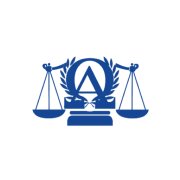Best Banking & Finance Lawyers in Surabaya
Share your needs with us, get contacted by law firms.
Free. Takes 2 min.
List of the best lawyers in Surabaya, Indonesia

Jiwangga Law Office | Lawyer Surabaya | Advokat Surabaya | Pengacara Surabaya
30 minutes Free ConsultationAbout Banking & Finance Law in Surabaya, Indonesia
Banking and Finance Law in Surabaya, much like the rest of Indonesia, is complex, comprising elements of local, regional, and international regulations. With Surabaya being the nation's second-largest city, it is home to many companies and branches of financial institutions that have to comply with these laws. This legislation governs all financial activities involving banks, insurance companies, credit companies, leasing companies, and other financial institutions.
Why You May Need a Lawyer
Legal advice in Banking & Finance is often required when you are starting a business and need assistance with commercial loans or setup of financial structures. Regular individuals may also need finance lawyers for handling mortgage issues, credit repair, bankruptcy, and managing investments. Those engaged in complex financial transaction such as mergers and acquisitions, securities trading, or bankruptcy liquidation, often require specialized legal advice.
Local Laws Overview
The Indonesian regulation that directly governs banking activities is the Banking Law (Law No.7/1992 as amended by Law No. 10/1998). This law covers provisions for both conventional and Islamic banking. It stipulates the types of banks, rules for foreign banks, and protocols regarding bank ownership. Other important laws to consider are the Company Law (Law No. 40/2007), Bank Indonesia Law (Law No.23/1999, as amended by Law No. 6/2009), and the Financial Services Authority Law (Law No. 21/2011).
Frequently Asked Questions
Can foreign banks operate in Surabaya?
Yes, but they must comply with the Banking Law and establish as a venture with an Indonesian bank or as a branch of the foreign bank.
How is consumer protection managed in Indonesian banking?
Consumer protection is managed under the Banking Law and Government Regulation No. 1/2013. These provide a framework for transaction transparency, complaint resolution, and risk management.
What happens in the case of a bank’s insolvency?
Indonesia has a Deposit Insurance Agency (Lembaga Penjamin Simpanan - LPS) that insures customer deposits in case a bank fails. The maximum amount guaranteed is IDR2 billion (approximately $140,000).
Can bank employees share my banking information?
No, the banking law necessitates strict bank confidentiality, breached only under certain exceptional circumstances delineated by the law.
What is the role of Bank Indonesia?
Bank Indonesia is the central bank of the country, and its primary function is to set and implement monetary policy.
Additional Resources
Bank Indonesia (Central Bank): http://www.bi.go.id/en and Indonesian Financial Services Authority (OJK): http://www.ojk.go.id/id are two essential resources for banking & finance law in Indonesia. Publications and guidance from PwC Indonesia and Indonesian Lawyers Association also prove to be useful.
Next Steps
If you require legal assistance in Banking & Finance, it is recommended to find a local lawyer with significant experience in this field. Ensure that the lawyer is familiar with both local and national regulations to guide you appropriately. Before engaging a lawyer, always verify their credentials and seek testimonials or case results to assess their aptitude.
Lawzana helps you find the best lawyers and law firms in Surabaya through a curated and pre-screened list of qualified legal professionals. Our platform offers rankings and detailed profiles of attorneys and law firms, allowing you to compare based on practice areas, including Banking & Finance, experience, and client feedback.
Each profile includes a description of the firm's areas of practice, client reviews, team members and partners, year of establishment, spoken languages, office locations, contact information, social media presence, and any published articles or resources. Most firms on our platform speak English and are experienced in both local and international legal matters.
Get a quote from top-rated law firms in Surabaya, Indonesia — quickly, securely, and without unnecessary hassle.
Disclaimer:
The information provided on this page is for general informational purposes only and does not constitute legal advice. While we strive to ensure the accuracy and relevance of the content, legal information may change over time, and interpretations of the law can vary. You should always consult with a qualified legal professional for advice specific to your situation.
We disclaim all liability for actions taken or not taken based on the content of this page. If you believe any information is incorrect or outdated, please contact us, and we will review and update it where appropriate.
Browse banking & finance law firms by service in Surabaya, Indonesia
Surabaya, Indonesia Attorneys in related practice areas.















